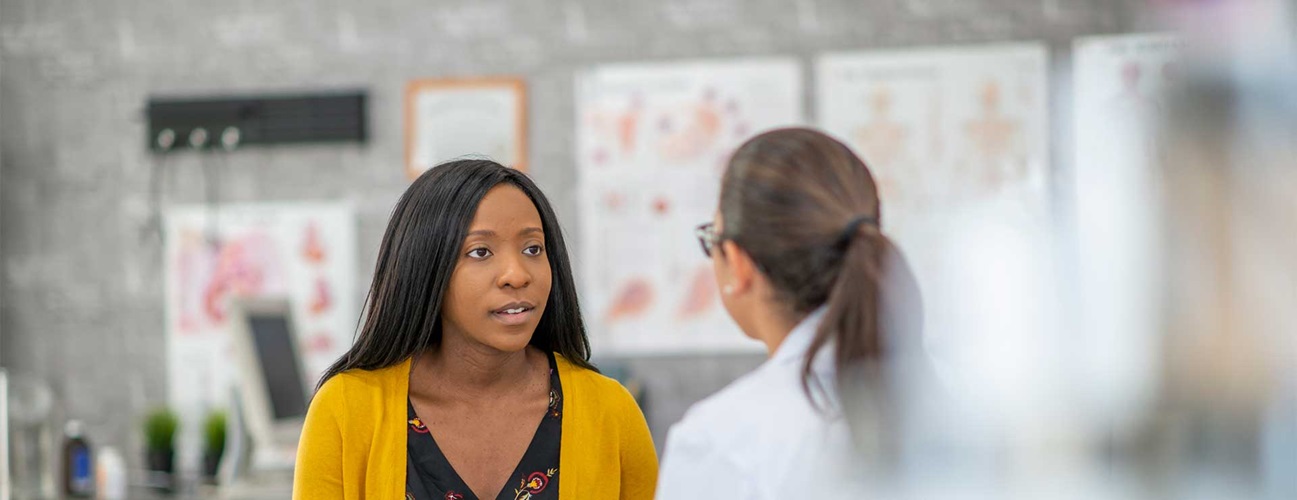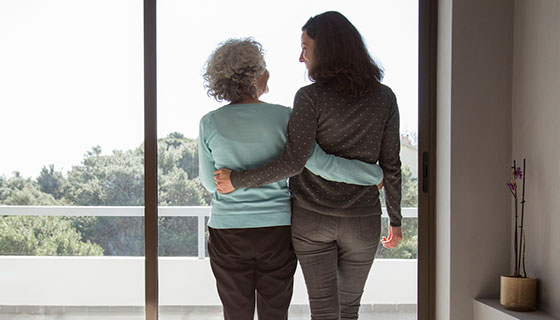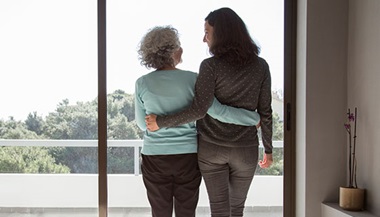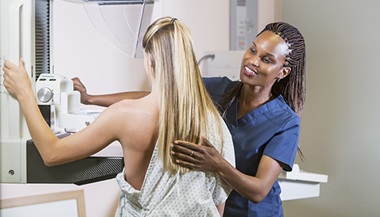Breast Pain: 10 Reasons Your Breasts May Hurt
Reviewed By:
Most women experience some form of breast pain at one time or another. Breast pain is typically easy to treat, but on rarer occasions it can be a sign of something more serious.
Medical director of the Suburban Hospital Breast Center Pamela Wright, M.D., discusses the most common causes of breast pain (mastalgia), their treatments and when to see a doctor:
Hormones are making your breasts sore.
Hormonal fluctuations are the number one reason women have breast pain. Breasts become sore three to five days prior to the beginning of a menstrual period and stop hurting after it starts. This is due to a rise in estrogen and progesterone right before your period. These hormones cause your breasts to swell and can lead to tenderness.
“It’s normal to have breast tenderness that comes and goes around the time of your period,” says Wright. “It’s nothing to worry about.”
If you become pregnant, your breasts may remain sore during the first trimester as hormone production ramps up. Breast tenderness is one of the earliest signs of pregnancy for many women.
Steps you can take to minimize sore breasts include:
- Eliminate caffeine
- Eat a low-fat diet
- Reduce salt intake
- Avoid smoking
- Take an over-the-counter pain reliever
- Ask your doctor if switching birth control pills or hormone replacement therapy medications may help
You have a breast injury.
Like any part of your body, breasts can be injured. This can happen because of an accident, while playing sports or from breast surgery. You may feel a sharp, shooting pain at the time of injury. Tenderness can linger for a few days up to several weeks after trauma to the breast. See your doctor if the pain doesn’t improve or you notice any of these signs:
- Severe swelling
- A lump in the breast
- Redness and warmth, which could indicate an infection
- A bruise on your breast that doesn’t go away
Your breasts hurt due to an unsupportive bra.
Without proper support, the ligaments that connect breasts to the chest wall can become overstretched and painful by the end of the day. The result is achy, sore breasts. This may be especially noticeable during exercise. Make sure your bra is the correct size and provides good support.
Breast pain is really coming from your chest wall.
What feels like breast pain may actually be coming from your chest wall. This is the area of muscle, tissue and bone that surrounds and protects your heart and lungs. Common causes of chest wall pain include:
- A pulled muscle
- Inflammation around the ribs
- Trauma to the chest wall (getting hit in the chest)
- Bone fracture
Breastfeeding is causing breast tenderness.
Breastfeeding can sometimes be the source of breast pain. Some of the things you can experience while nursing include:
- Painful nipples from an improper latch (the way a baby latches on to suck)
- Tingling sensation during letdown (when the milk starts to flow to the baby)
- Nipple soreness due to being bitten or having dry, cracked skin or an infection
You have a breast infection.
Breastfeeding women are most likely to get breast infections (mastitis), but they occasionally occur in other women, too. If you have a breast infection, you may have a fever and symptoms in one breast, including:
- Pain
- Redness
- Swelling
If you think you may have a breast infection, it’s important to see a doctor. Treatment typically includes antibiotics and pain relievers.
Breast pain could be a medication side effect.
Some medications may cause breast pain as a side effect. Talk to your doctor about the medications you’re on and if this could be the case for you. Some drugs with this known side effect include:
- Oxymethone, used to treat some forms of anemia
- Chlorpromazine, used to treat various mental health conditions
- Water pills (diuretics), drugs that increase urination and are used to treat kidney and heart disease and high blood pressure
- Hormone therapies (birth control pills, hormone replacement or infertility treatments)
- Digitalis, prescribed for heart failure
- Methyldopa, used to treat high blood pressure
You have a painful breast cyst.
If a tender lump suddenly appears in your breast, you may have a cyst, says Wright. “These fluid-filled lumps aren’t dangerous and often don’t need to be treated as they may resolve on their own. But it’s important to get any lump in your breast evaluated by a doctor.”
To diagnose a cyst, your doctor may recommend a mammogram, ultrasound or aspiration (drawing fluid from the lump). Draining fluid from the cyst is also a form of treatment. If the cyst isn’t bothersome, you may not need any treatment at all.
Learn more about breast cysts and other noncancerous breast lumps.You’re experiencing painful complications from breast implants.
Some women have complications with breast implants, whether made of silicone or saline. One of the most common causes of pain after breast augmentation surgery is capsular contracture, when scar tissue forms too tightly around implants. Breast pain can also be an indication that one of your implants has ruptured. Talk to your doctor about any pain you’re having to determine if it could be related to the breast implants.Breast pain can sometimes be a sign of breast cancer.
It’s unusual for breast cancer to cause pain, says Wright, but not impossible. Inflammatory breast cancer often causes pain but it’s rare, accounting for 1% to 5% of breast cancer cases in the United States. Symptoms of this aggressive disease often come on suddenly and progress rapidly. Inflammatory breast cancer may cause the breast to become:
- Red or discolored
- Swollen or heavy
- Painful
When to See a Doctor for Breast Pain
Although most cases of breast pain are minor problems, it’s important to talk to your doctor about your concerns. “If you have persistent breast pain, you should be evaluated,” says Wright. “And anyone who has a lump — painful or not — should see their doctor for an exam to make sure there isn’t a problem.”







